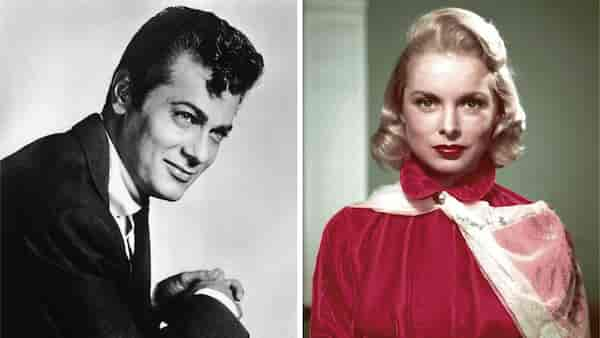Jamie Lee Curtis' Oscar Win Takes Her Inherited Legacy A Step Further

Last Updated: 10.57 PM, Mar 13, 2023
“THE BEST REVENGE would be to live well,” Jerry Seinfeld tells George Costanza, in an episode of Seinfeld. George was never capable of that evolved resolve, but at the 95th Academy Awards, aka the 2023 Oscars, Jamie Lee Curtis embodied the philosophy to an extent. In what many have identified as the “ultimate nepo baby revenge” Curtis bagged the golden statuette that both her parents came close to — father Tony Curtis was nominated in the Best Actor category in 1959 for his role in The Defiant Ones; mother Janet Leigh had a Best Supporting Actress nod in 1960 for Psycho — but never won.
This brings Jamie Lee Curtis into a rarified group of Oscar-nominated actors whose parents have also both earned Oscar nominations:
Laura Dern (in the running three times — twice for Best Actress with Rambling Rose, 1992 and Wild, 2015; and Best Supporting Actress for A Marriage Story in 2020, which she won), whose mother Diane Ladd also had three nominations, all for Best Supporting Actress, for Academy Award for Alice Doesn't Live Here Anymore (1974), Wild At Heart (1990) and Rambling Rose alongside her daughter in 1992. Laura’s father Bruce Dern had two brushes with Oscar gold: Best Supporting Actor for Coming Home (1978) and Best Actor for Nebraska (2013).

The other member of this club is Liza Minnelli, who was nominated for the Best Actress honour twice — in 1970 for The Sterile Cuckoo and ‘73 for Cabaret (which she won). Her mother, Judy Garland, had two nominations — Best Actress for A Star Is Born (1954) and Supporting Actress for 1961’s Judgement at Nuremberg — plus an honorary prize: the Academy Juvenile Award for The Wizard of Oz/Babes in Arms in 1939. Meanwhile, Liza’s father, the director Vincente Minnelli had his films An American in Paris (1951) and Gigi (1958) scoop up the Academy Award for Best Picture, with an additional Best Directing honour for Minnelli for Gigi.
Curtis’ isn’t exactly the kind of rags-to-riches story that most of us like to get behind, but it is unique for its symmetry, especially given the fact that she won her Oscar for playing a part in a film about immigrants — much like her parents’ families, at one point.
UNLIKE her more celebrated peers like Frances McDormand, Jamie Lee Curtis has never quite been unleashed in the way the Daniels — the directing duo behind Everything Everywhere All At Once — now have, through the playful chaos of a film that maximises both space and time. Curtis plays Deirdre, an IRS agent evaluating the Wangs (Michelle Yeoh and her family) for alleged tax-related fraud. Her snide yet cheerful countenance is the perfect foil for the Wangs’ somewhat demure response to being cornered. She plays villain, friend and distant empathiser all at once. Again, it’s the kind of eccentric film that unlocks not one, but many sides of an acting juggernaut waiting to be ignited.

Look at her filmography and though Curtis’ acting credits indicate prolificacy, they rarely impart the idea of quality, or for that matter creative clarity. Curtis simply hasn’t broken through as you’d expect someone of her pedigree to. It’s neither for lack of trying, nor for the lack of privilege. Curtis was born to two bona fide movie stars, raised on a staple diet of movies; yet she hasn’t quite forged the kind of career that — at least on paper — must have been expected of her. Even to the empowered, life happens.
John Carpenter’s breakout slasher hit Halloween (1978) put a young Curtis on a podium that she has, evidently, struggled to desert. What followed this early high were a slew of mediocre horror films; some of them, like Prom Night, were less mediocre than the others. In Blue Steel (1989), Curtis played a feisty, somewhat sensual cop while collaborating with cinema’s most promising female directing voice at the time, Kathryn Bigelow. This reluctant sensuality was explored in James Cameron’s True Lies (1994), in which she plays the restrained yet spiky wife of a jealous spy. From horror to action to comedy in the excellent Freaky Friday (2003), Curtis has done varied but not quite bespoke work, the latter of which actors flaunt as a matter of substance compared to style.

THERE isn’t much sympathy in cinema circles for Curtis’ struggles, considering her cinematic heritage and by extension, proximity to power. The nepotism debate in Hollywood isn’t as intense as it is in Bollywood, but the criticism is never far off, just like the shame, possibly of being unable to justify the means with an end. To which, Curtis’ win represents a career high that has taken its sweet time to arrive. She has in this time acted on TV, given her voice to documentaries and films and even done the odd special appearance on a sitcom, to get word of mouth going. Though her co-actor Ke Huay Quan swept all the ‘awwws’ of the award season with a crowd-pleasing narrative and enthusiasm to boot, Curtis’ win is no less a miracle.
Curtis recently also starred in Rian Johnson’s now-renowned franchise Knives Out, but you can tell how remarkable her victory is by simply surveying the names of her releases that Everything Everywhere All At Once was sandwiched between — Halloween Kills and Halloween Ends. That you pull a performance out of the bag, in a film that defies being boxed and is as magically quirky as it is impossible to conceive, is some way to finally snatch your moment of reckoning. The role that made Curtis a notable actor has obviously refused to let go of her but what it has possibly also done is kept the seasoned actress engaged, or at least interested in the craft that her family has nurtured. There is possibly a life lesson here, in streaming through the pushback of an aggrieved world that judges you equally for what you have and what you don’t. Not everyone can and will turn either into something meaningful, but in Curtis’ perseverance, her adaptability, there is at least the sign of what ambition tied to humility actually looks like.

 Premium
Premium